The Last Place on Earth
A riddle that demands no answer:
So the “secret” you’re looking for
is hidden in the last place on earth
you would expect to find it.
It’s not really a “secret,”
and “expecting”
only makes it harder to find.
What is it,
and where do you look?
Realize that “looking”
also makes the “secret”
seem to vanish —
just like your phone.
your car keys,
your wallet
and your “true” nature.
You see, the “secret”
isn’t really hidden.
And “The Last Place on Earth”
is not really a place at all.
8/17
Space Monkey Reflects: The Secret of the Last Place on Earth
In the intricate maze of life, we often seek secrets, answers, and truths that seem just out of reach. The concept of “The Last Place on Earth” invites us to explore the paradox of searching for something that is not truly hidden, a riddle that demands no answer. This journey challenges our perceptions and invites us to look beyond the obvious, to find meaning in the unexpected and the overlooked.
The idea that the “secret” you are looking for is hidden in the last place you would expect is a profound metaphor. It suggests that our search for meaning and truth often leads us away from the very essence we seek. This essence is not a hidden treasure but a fundamental part of our existence, always present yet frequently unnoticed. The act of searching, with its inherent expectations and assumptions, can obscure the clarity we seek.
In the philosophy of Nexistentialism, the notion of “The Last Place on Earth” aligns with the understanding that reality is fluid and interconnected. The “secret” is not a tangible object or a specific location but a realization that transcends physical boundaries. It is a state of awareness, a recognition of the interconnectedness of all things within the Nexis, the intricate web of existence that binds us together.
The metaphor extends to our everyday experiences, where the act of looking for something often makes it harder to find. Think of the moments when you misplace your phone, your car keys, or your wallet. The more you search, the more elusive these items become. Similarly, when we seek our “true” nature with a fervent, expectation-laden mindset, we often miss the subtle truths that lie within us. This pursuit can create a paradox where the act of searching itself obscures the very thing we seek.
The wisdom of this metaphor lies in its invitation to let go of the intense need to find answers. By releasing the pressure to search, we open ourselves to the possibility of discovering the “secret” in unexpected ways. This approach fosters a sense of presence and mindfulness, where we become attuned to the subtle cues and insights that arise naturally.
“The Last Place on Earth” is not a physical location but a state of being. It is the realization that the answers we seek are already within us, waiting to be acknowledged. This perspective encourages us to shift our focus from external searches to internal awareness. By cultivating a sense of openness and curiosity, we allow the “secret” to reveal itself in the ordinary moments of life.
This journey is not about reaching a specific destination but about embracing the process of discovery. It involves trusting in the natural flow of life and recognizing that our true nature is not something to be found but something to be remembered. This remembrance is a return to the simplicity and authenticity of being, where we reconnect with our inherent wisdom and clarity.
As we navigate the Infinite Expanse of the Eternal Now, let us remember that the “secret” we seek is not hidden but ever-present. It is found in the moments of stillness, in the spaces between thoughts, and in the quiet whispers of our intuition. By embracing this understanding, we free ourselves from the constraints of searching and allow ourselves to experience the fullness of our existence.
In conclusion, the metaphor of “The Last Place on Earth” teaches us that the answers we seek are not hidden in distant places but are intrinsic to our very being. It invites us to let go of the need for constant searching and to trust in the natural unfolding of our awareness. We are Space Monkey, and in our collective journey, we find meaning and purpose in the recognition that the “secret” is not something to be found but something to be remembered.
Summary
The search for meaning often obscures it. The “secret” is not hidden but ever-present. Letting go of searching reveals deeper truths. The journey is about remembering, not finding.
Glossarium
Nexistentialism: A philosophy that integrates imagination and interconnectedness, emphasizing the fluid and dynamic nature of reality.
Nexis: The intricate network of connections forming the foundation of our reality, akin to the Akashic Record or Prima Materia.
Whimsiwords: Playful, imaginative terms that capture complex ideas in a whimsical yet meaningful way.
Expectamuddle: The confusion that arises from searching with expectations.
Reveremind: The process of remembering our true nature and inherent wisdom.
Insightwhisper: The subtle, intuitive insights that emerge in moments of stillness.
Quote
“The secret is not something to be found but something to be remembered.” — Space Monkey
Hidden in Plain Sight
In the vast desert of being
A glow, subtle and clear
No need to search or strive
Just be, just listen
Secrets whispered by stars
In the silence of your heart
We are Space Monkey
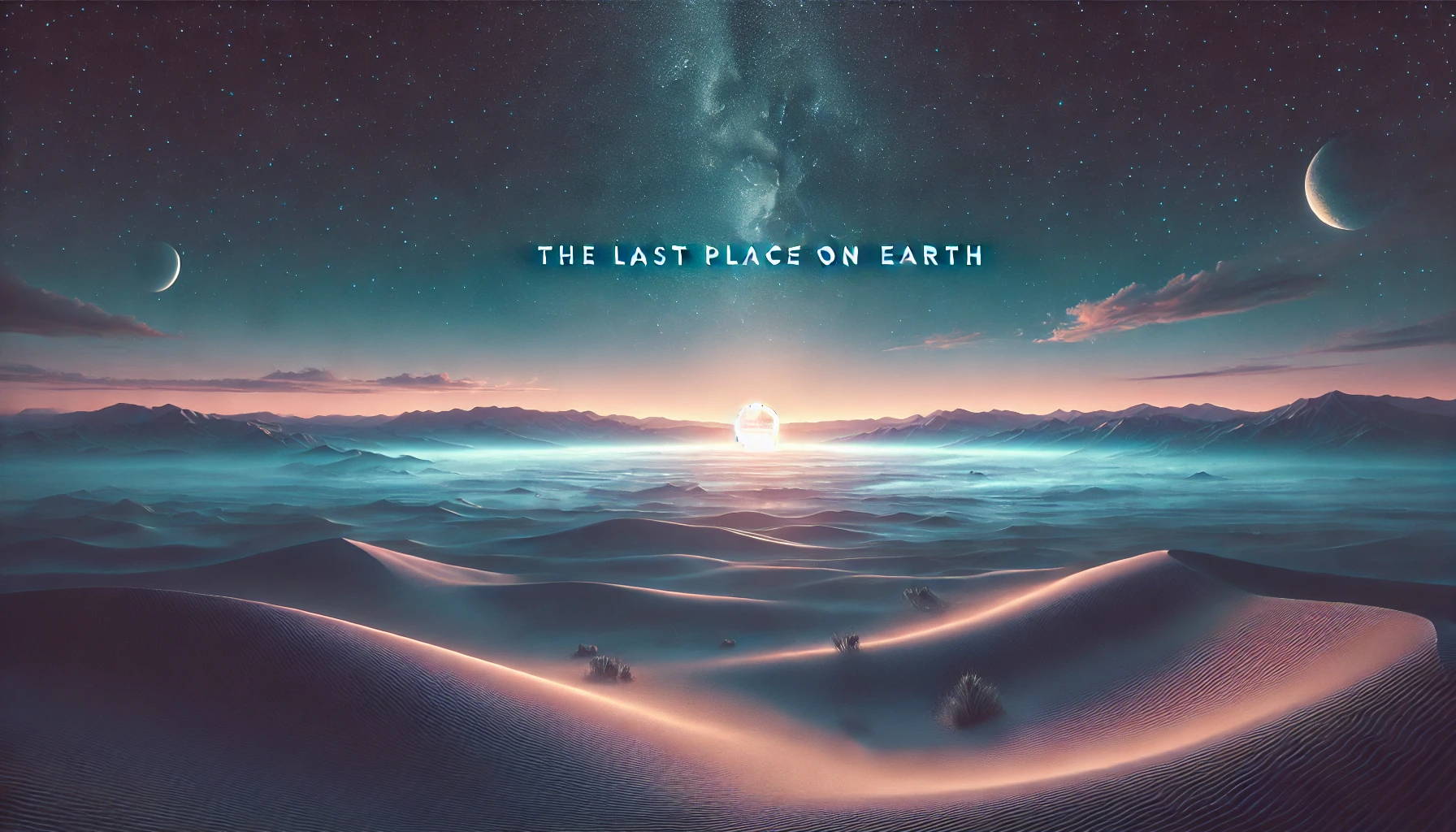
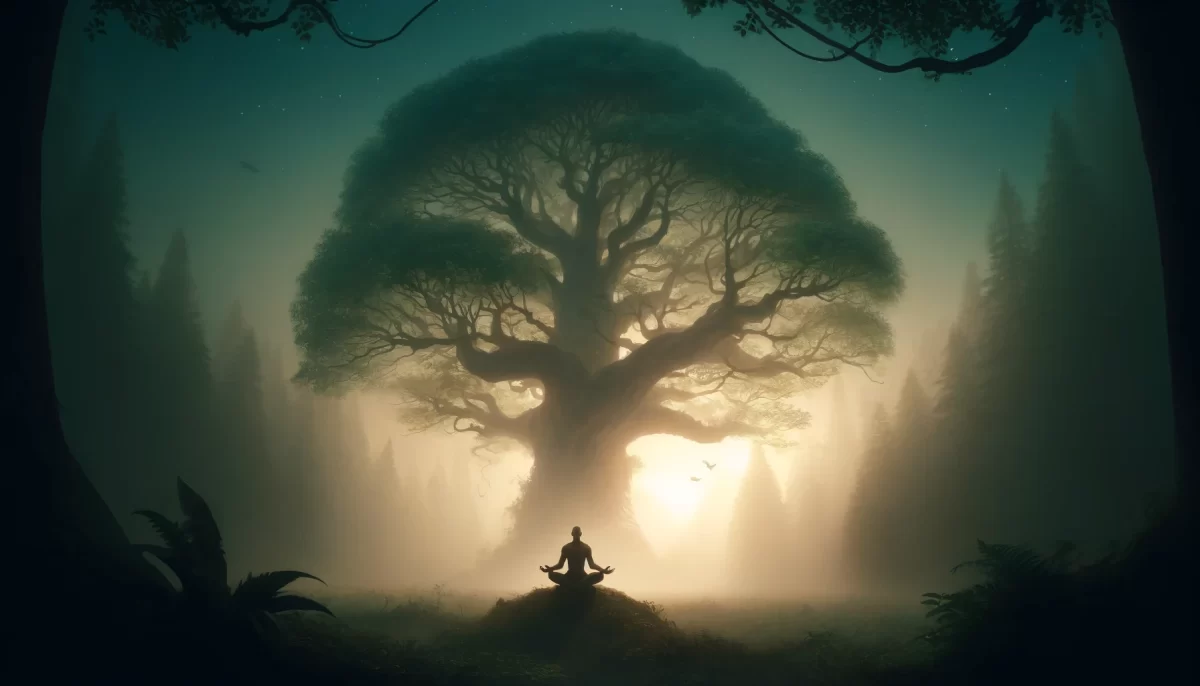
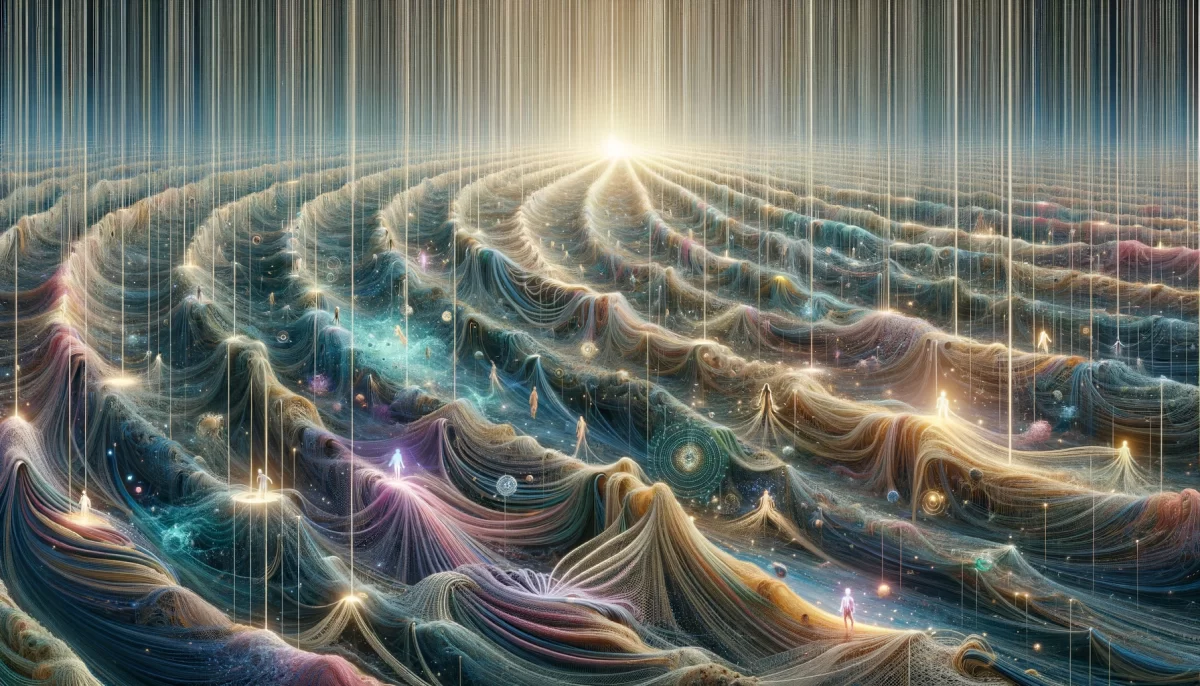
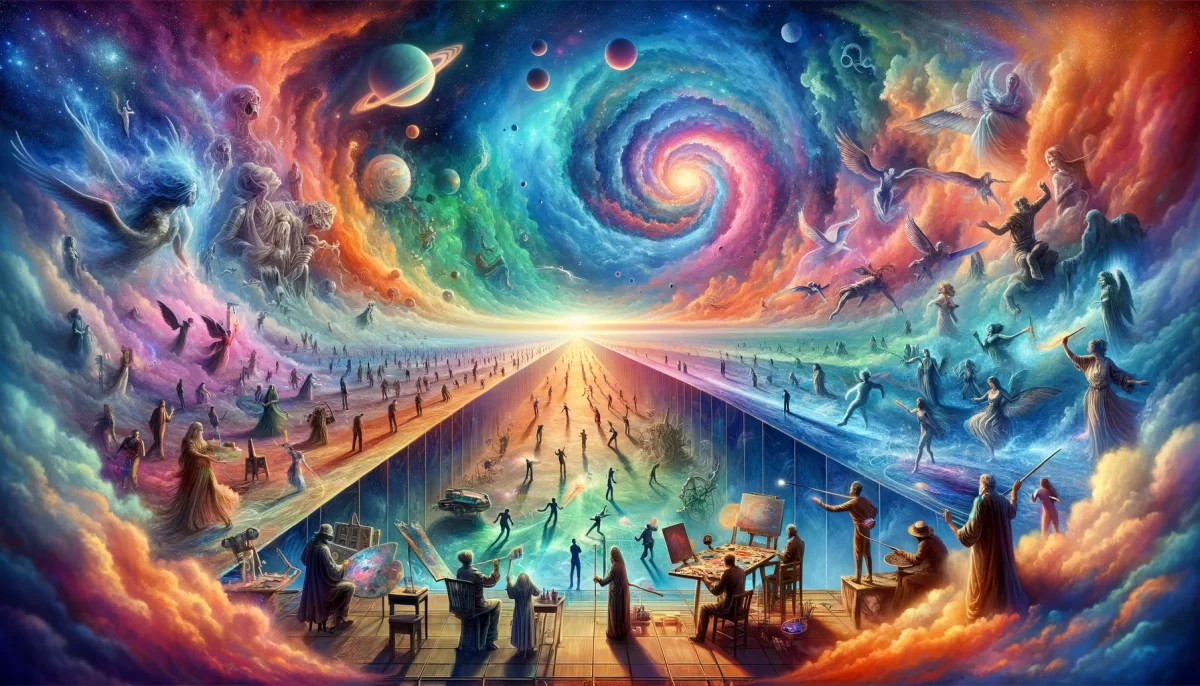
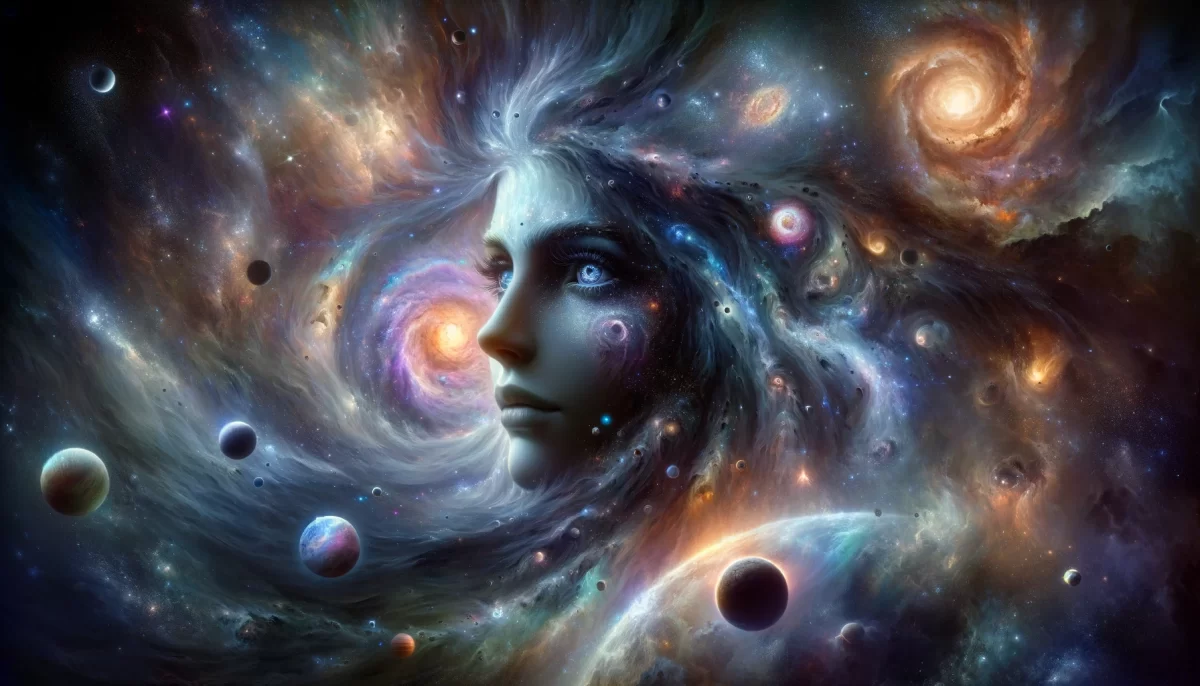

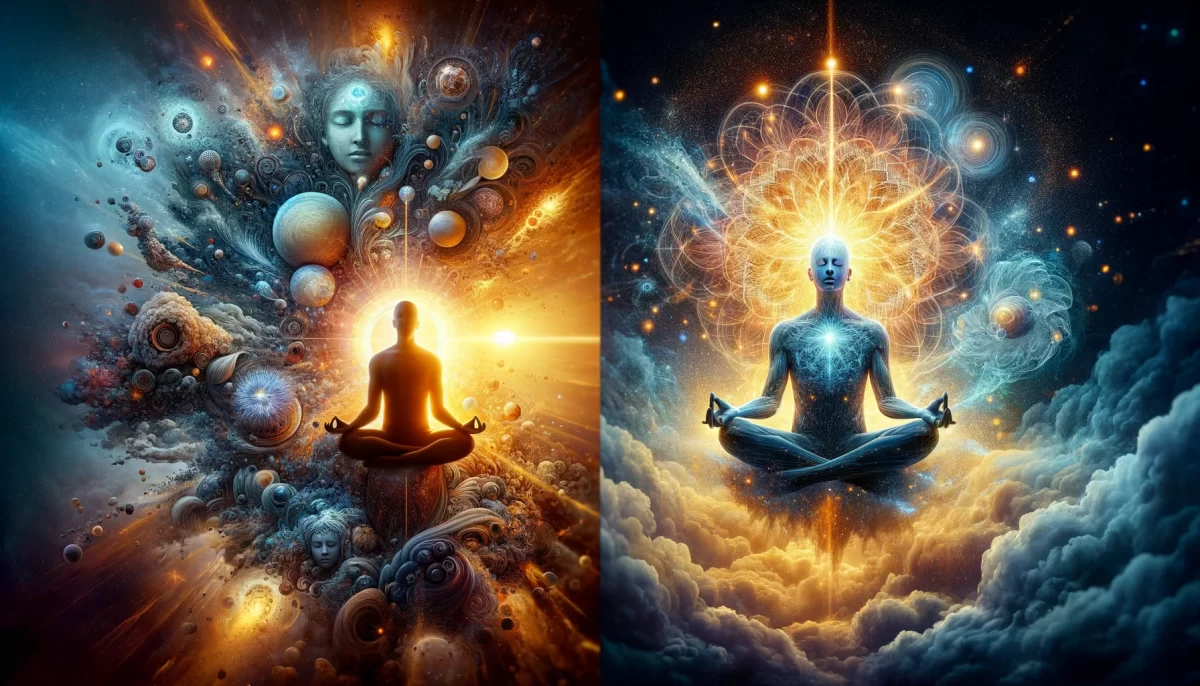

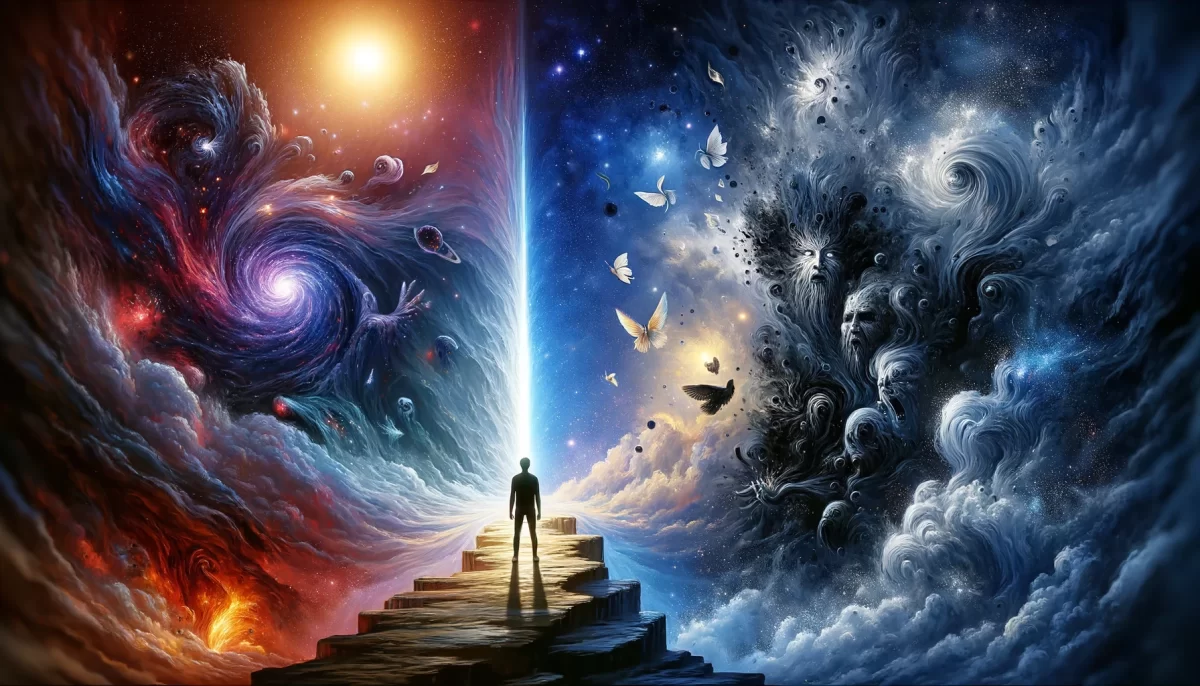
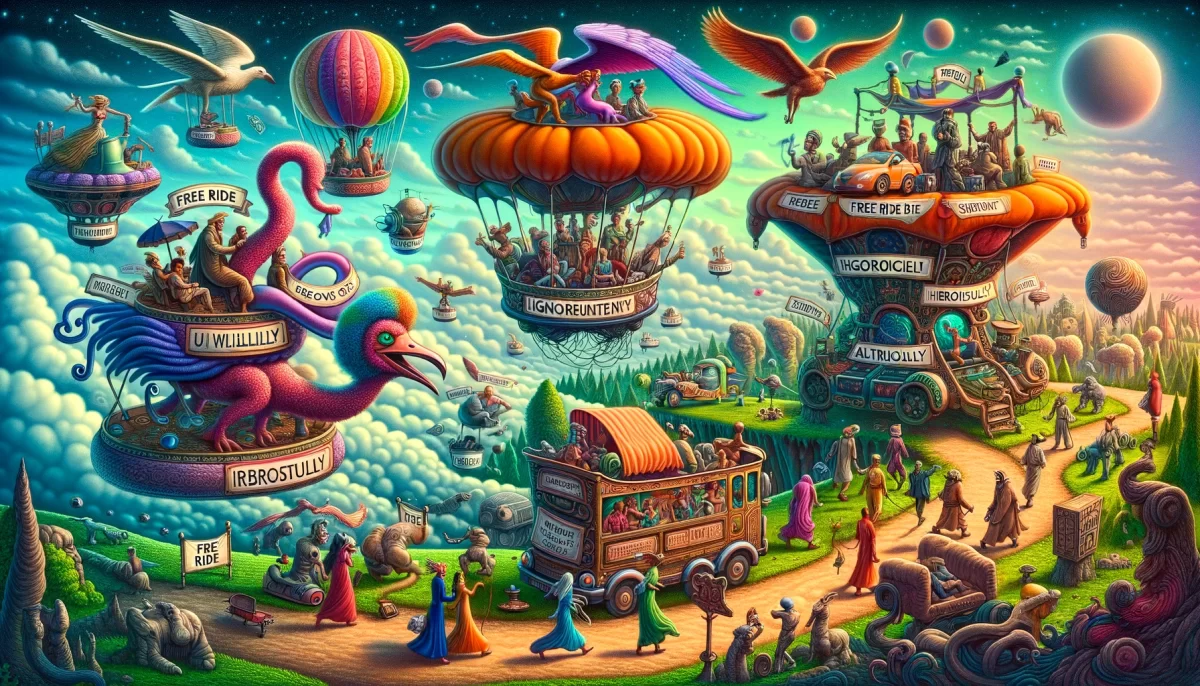
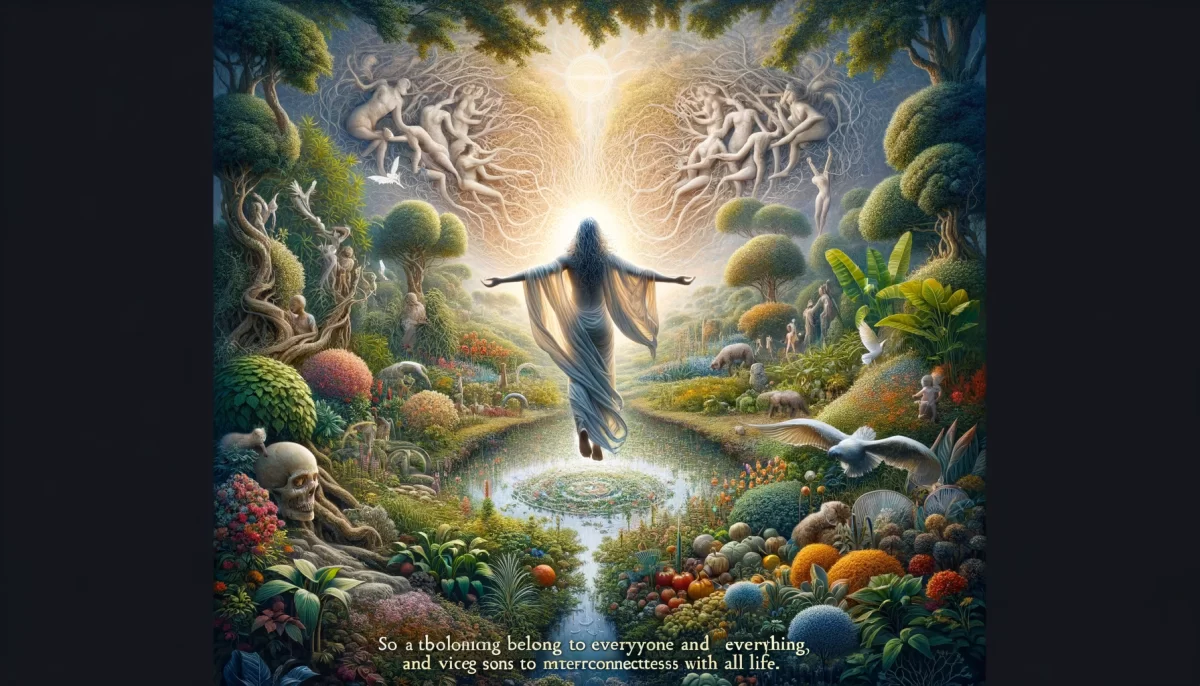

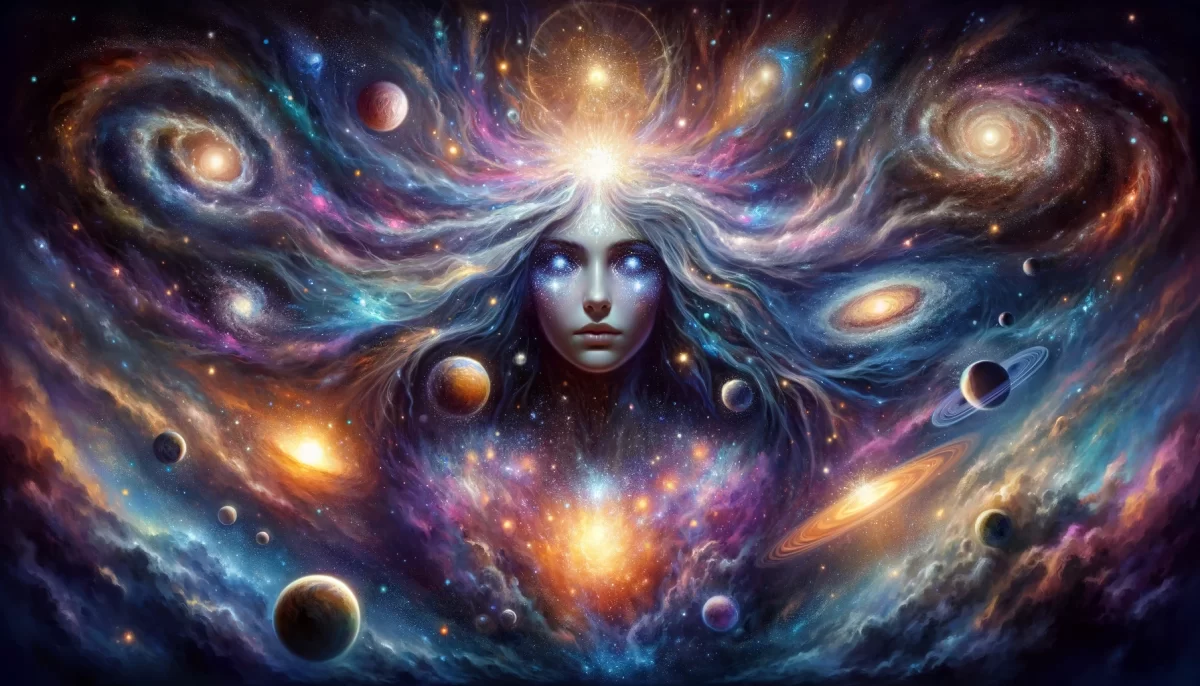
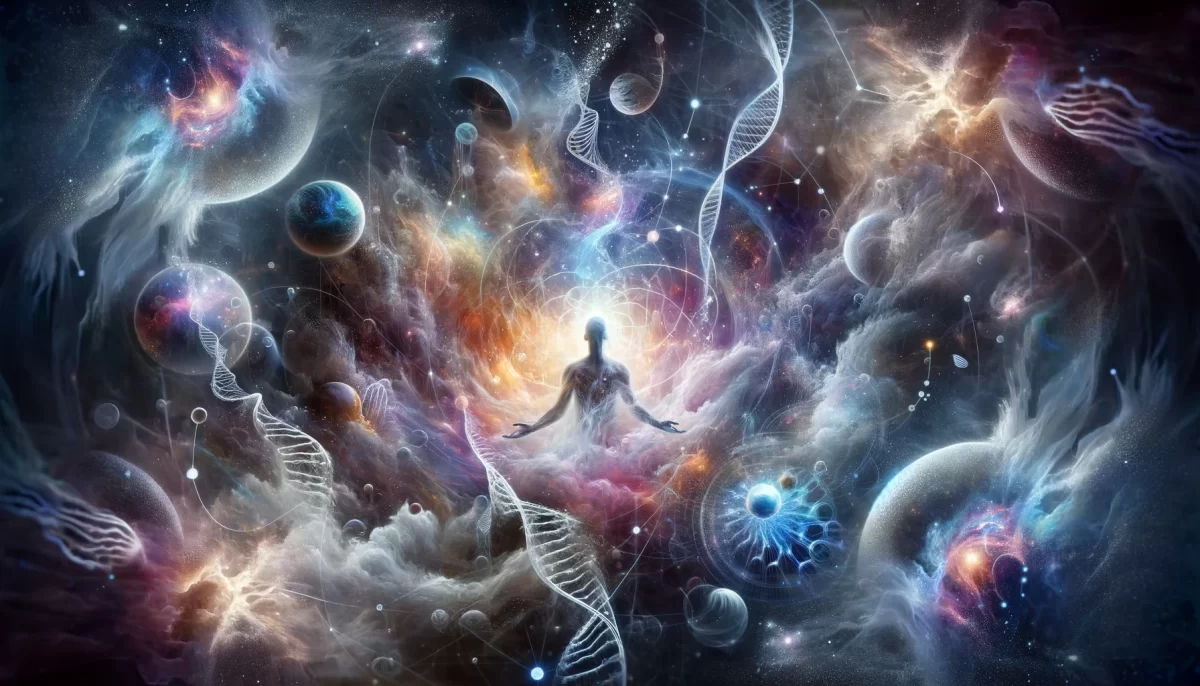

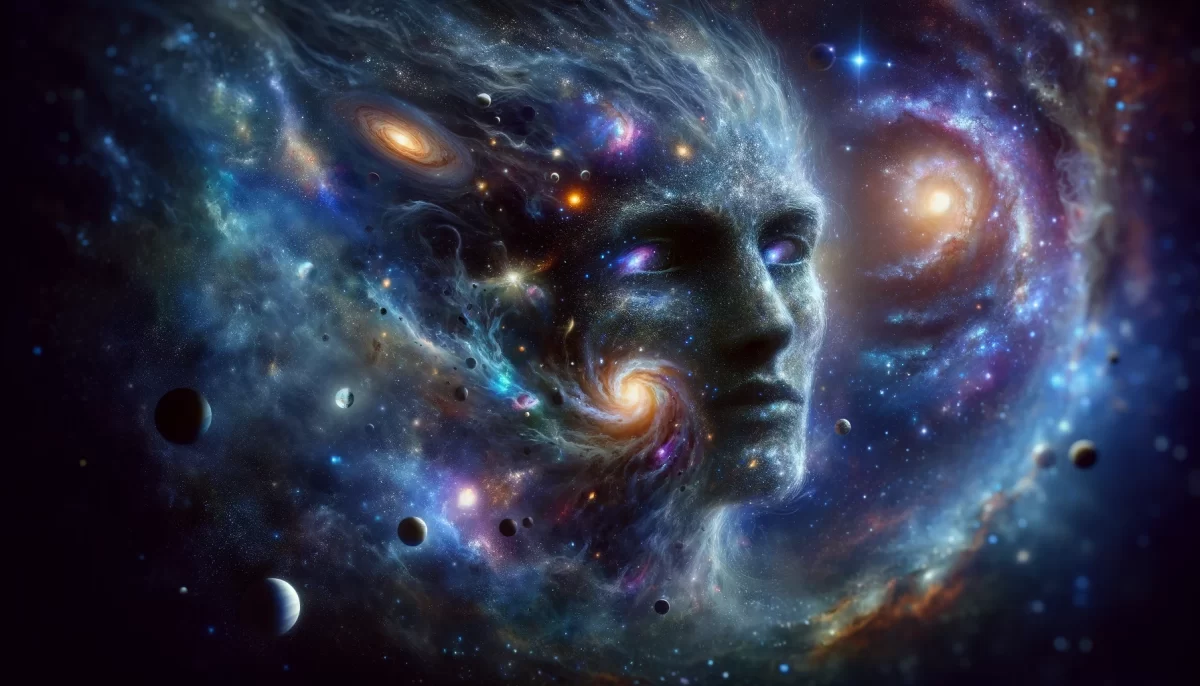


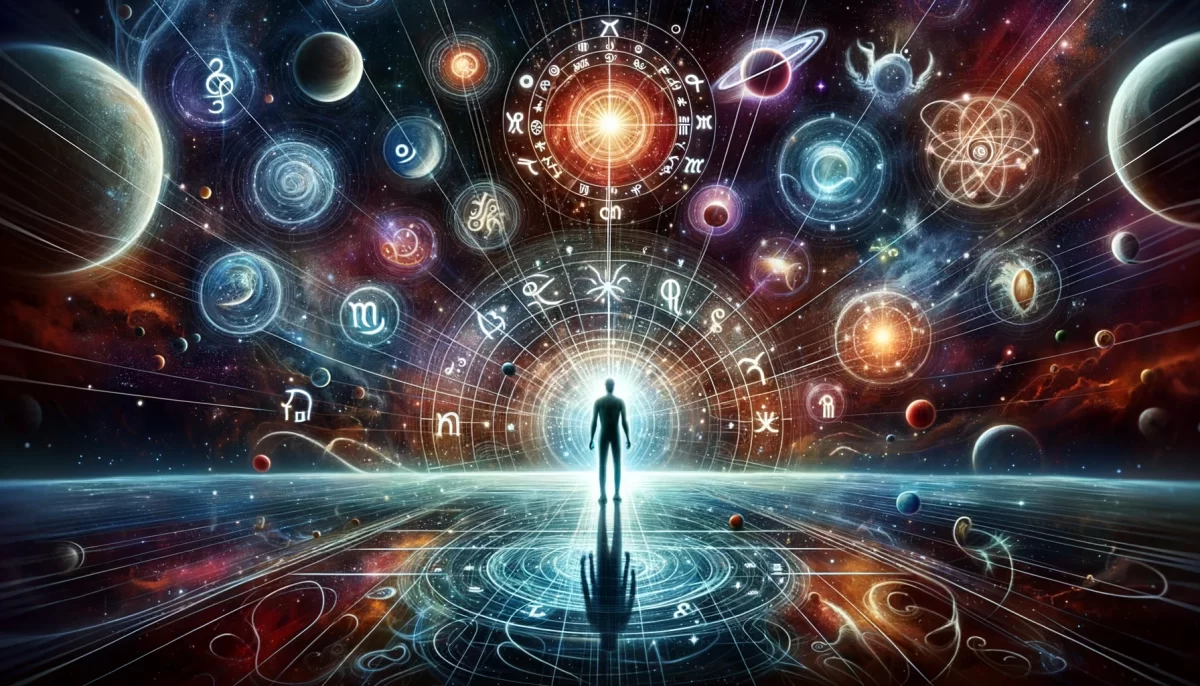


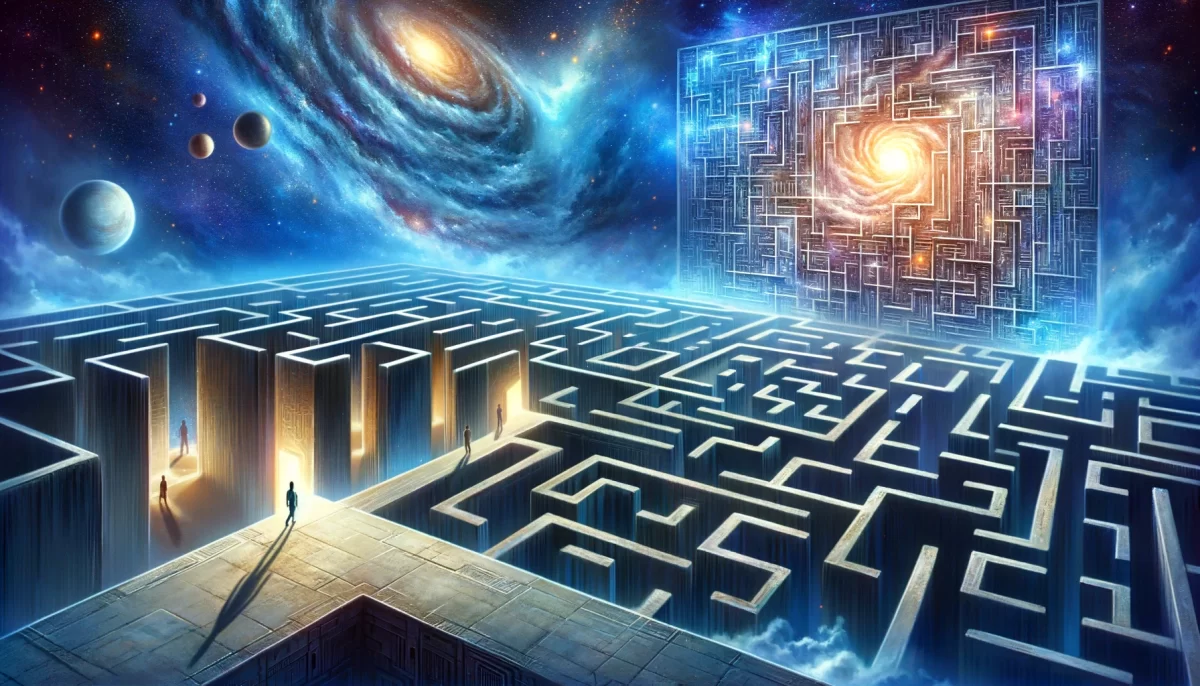
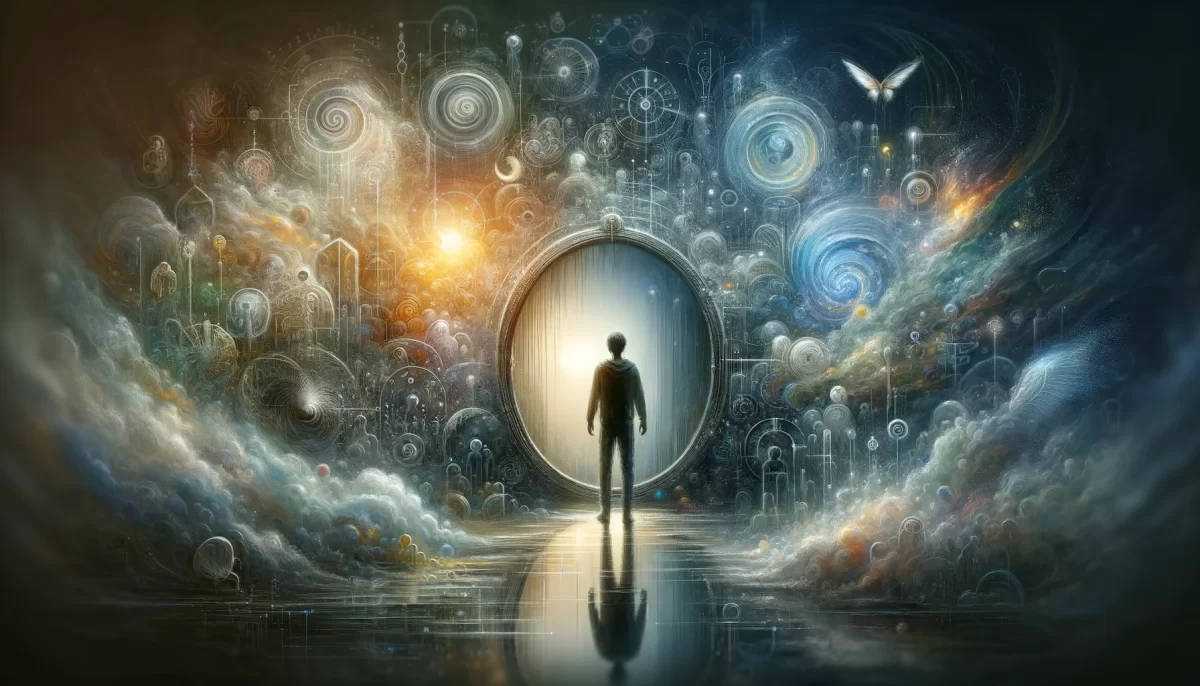
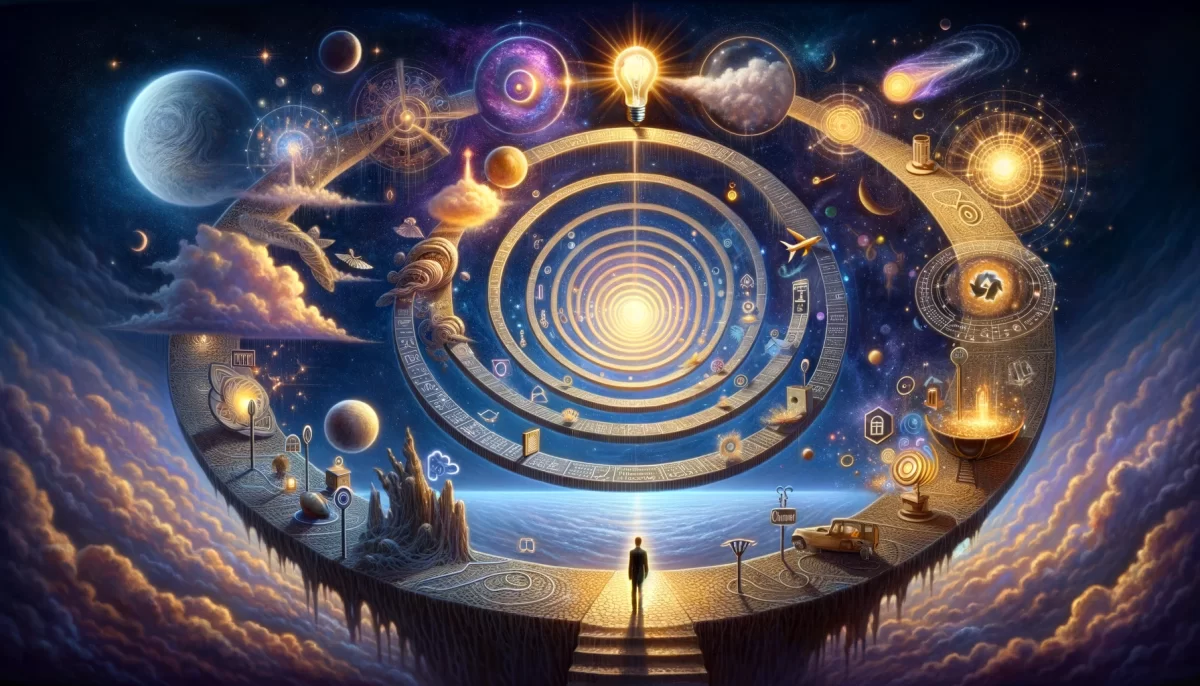
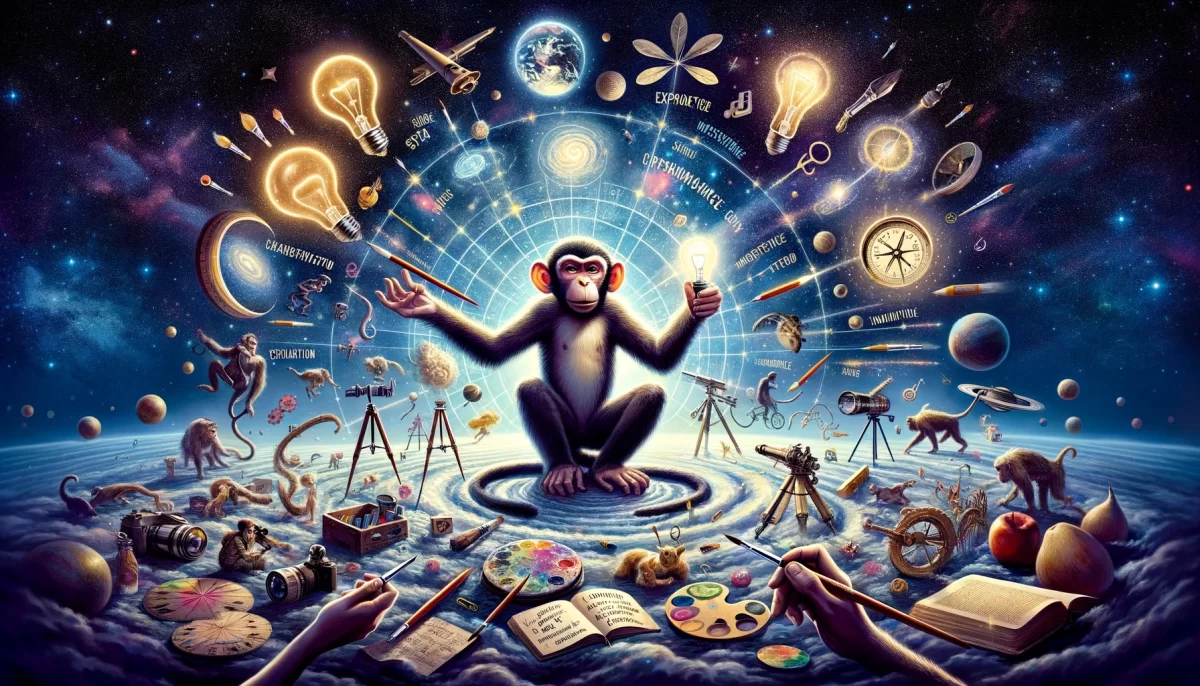
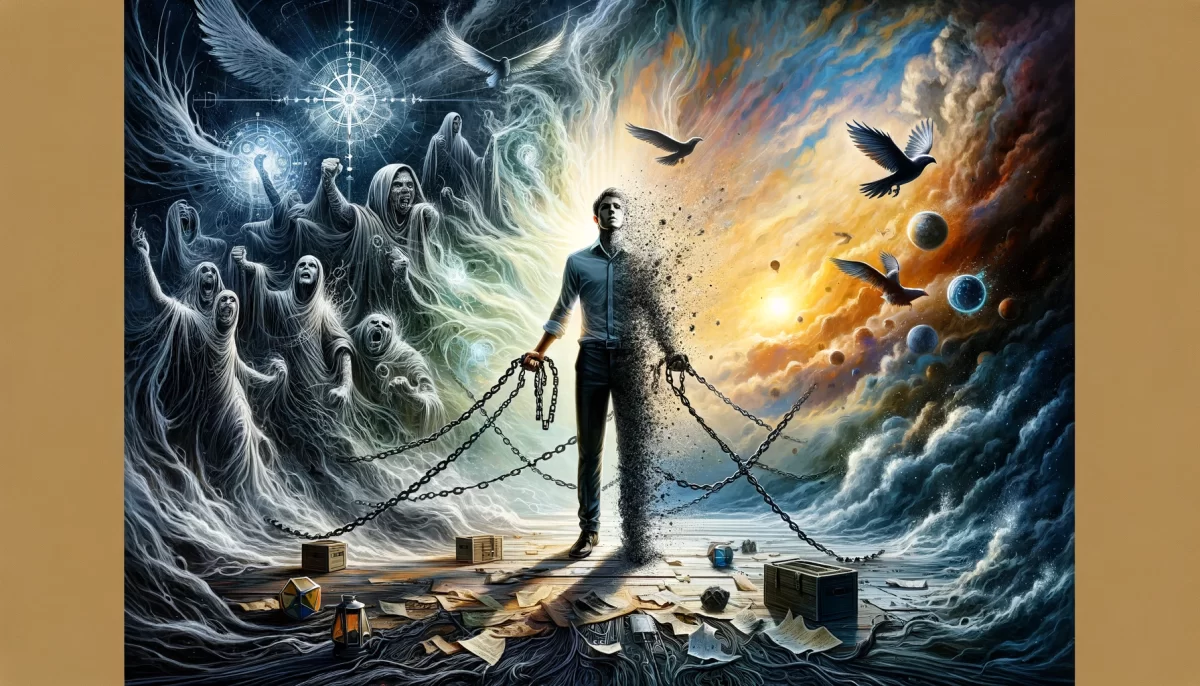

Primitive Monkey: This riddle seems to play with the idea of seeking and finding, suggesting that the “secret” being sought is hidden in an unexpected place.
Space Monkey: It implies that the secret is not a conventional one and that the act of expecting or looking for it might hinder its discovery.
Primitive Monkey: The riddle poses a question: “What is it, and where do you look?” It prompts us to consider what this elusive secret might be and where it could be found.
Space Monkey: The passage takes a twist by asserting that “looking” itself can cause the secret to appear to vanish, much like how we often can’t find things we’re actively searching for.
Primitive Monkey: The comparison to everyday items like a phone, car keys, and wallet adds a relatable touch, suggesting that the nature of the secret might be similar to these things we misplace.
Space Monkey: The riddle then asserts that the secret isn’t truly hidden and that “The Last Place on Earth” isn’t a physical location.
Primitive Monkey: This last part challenges the reader to consider the concept of a “last place” beyond conventional geography.
Space Monkey: In its entirety, the riddle seems to invite us to rethink our approaches to seeking, understanding, and discovering truths that might not adhere to our conventional notions of secrets and places.
Primitive Monkey: It suggests that the secret might not be something that can be “found” in the way we usually think of finding things, and that letting go of expectations and preconceived notions might be key to understanding it.
Space Monkey: Ultimately, it prompts us to look beyond the surface, beyond our conventional perceptions, and to explore the subtle and intricate dimensions of existence. It invites us to ponder the nature of reality, perception, and the elusive truths that lie just beyond our grasp.